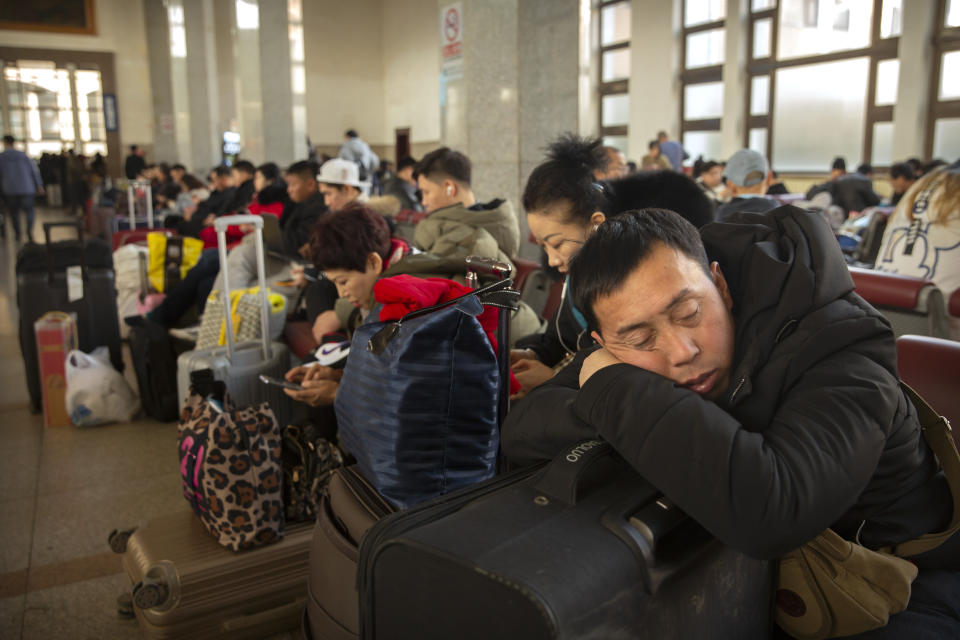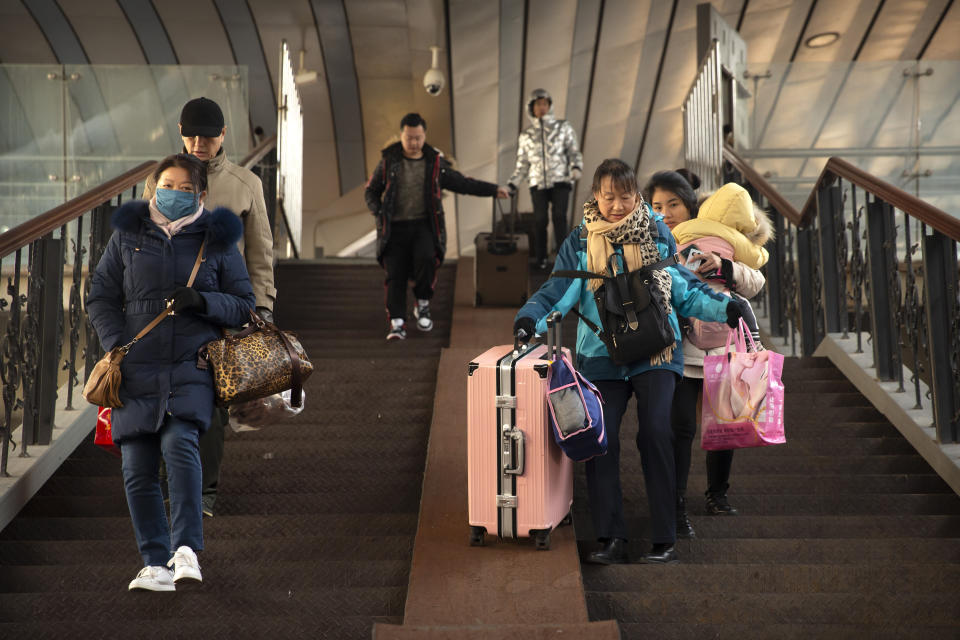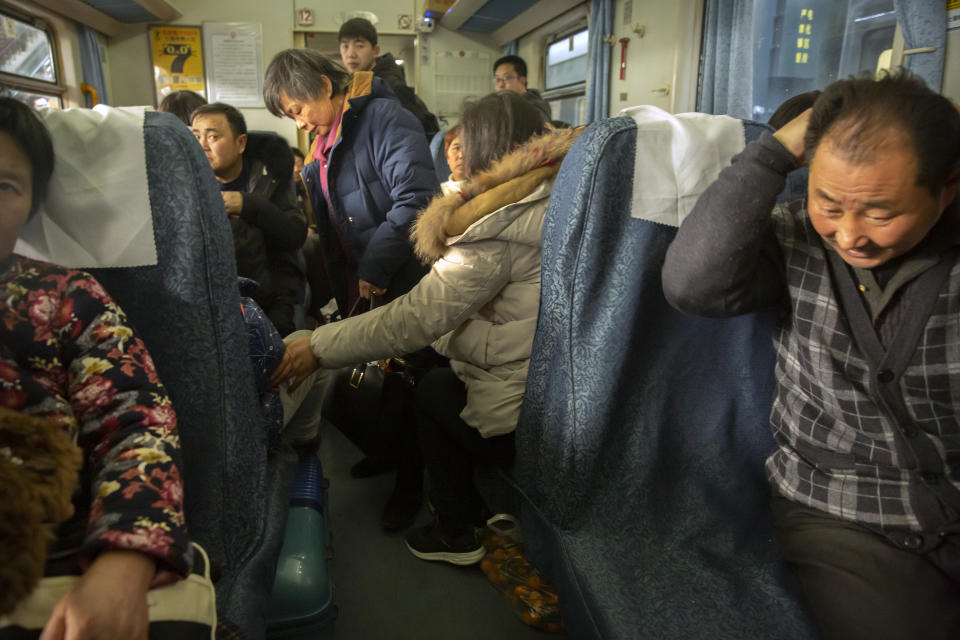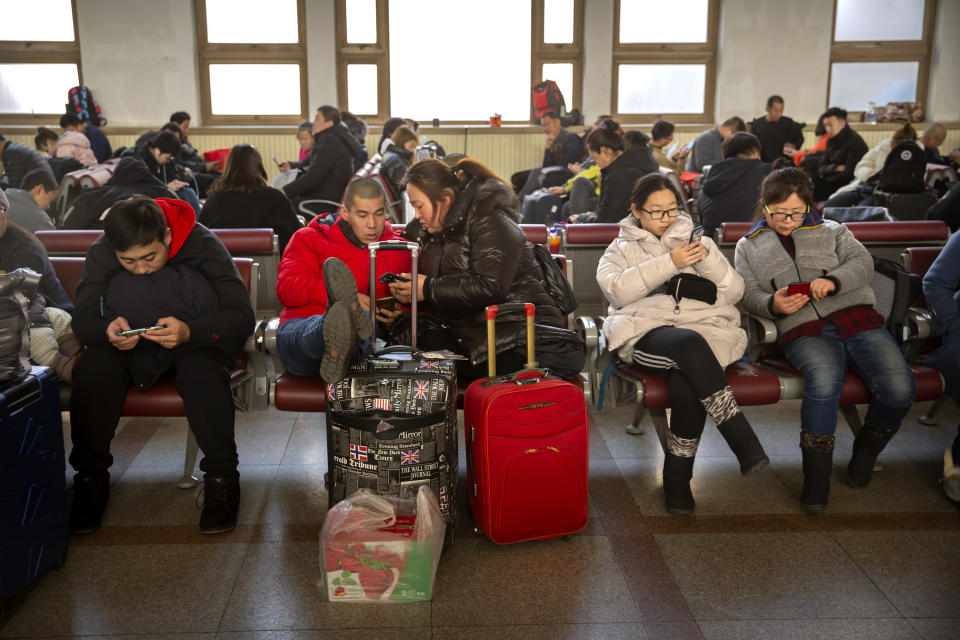World's biggest yearly human migration begins again in China
BEIJING (AP) — As the Lunar New Year approaches, Chinese travelers flocked to train stations and airports Friday to take part in a nationwide ritual: the world's biggest annual human migration.
Around 3 billion trips will be made during the Spring Festival travel rush, China's Transport Ministry has estimated. The period began this year on Jan. 10 and is expected to last through Feb. 18, well after Lunar New Year's Day on Jan. 25.
The festivities are a time for family reunions and abundant feasts. For migrant laborers who work in cities far from home, it may be the one time in the year that they can see their relatives.
Extra precautions will be taken with this year's journey, as a viral pneumonia outbreak has struck central China. In the city of Wuhan, 41 people have been diagnosed with a new type of coronavirus, a family of viruses with consequences ranging from the common cold to severe diseases like SARS. Two patients have died.
Transport hubs will strengthen disinfection, monitoring and prevention measures, said Wang Yang, the Chinese Ministry of Transport's chief engineer.
“The emergence of the epidemic may cause panic among people, especially in areas where people are concentrated during the Spring Festival travel period,” Wang told reporters at a news conference last week.
There were no signs of additional screening or other measures to combat the spread of germs Friday morning at Beijing South Station, where thousands thronged the station's main hall. Officers at a police outpost said they were not aware of the coronavirus outbreak. A woman named Wang Liu at the station's service counter said she "hadn't heard of" the situation.
___
Associated Press journalist Dake Kang contributed to this report.











